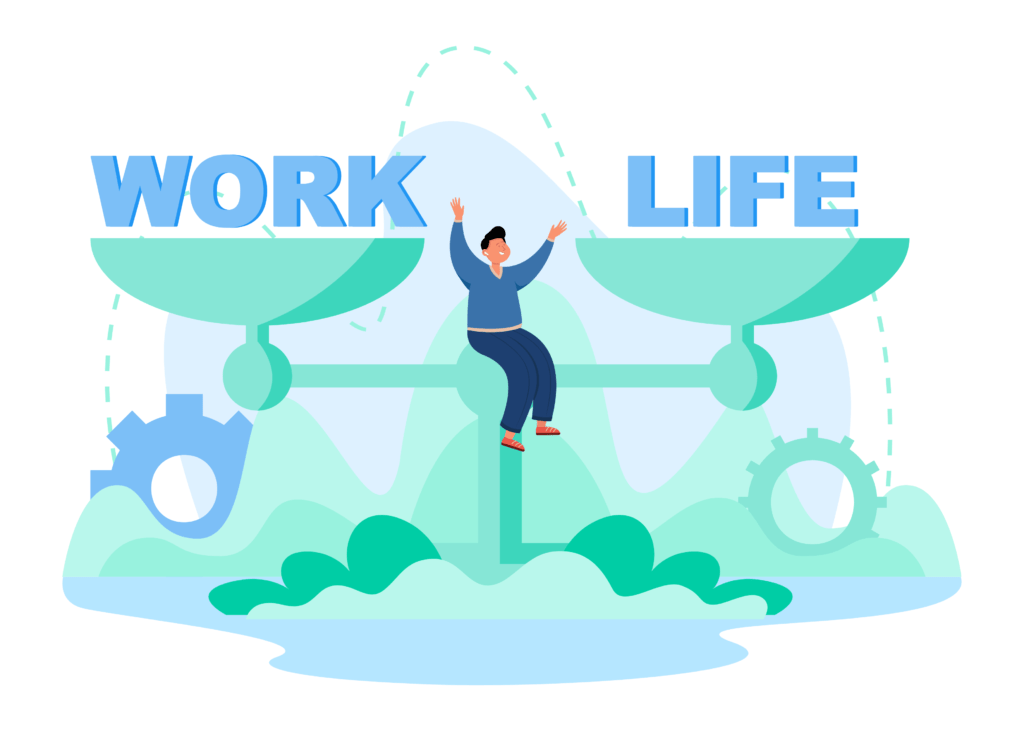FINANCIAL PLANS/MODELS, BUSINESS PLANS, AND PITCH DECKS FOR STARTUPS
Join 450+ happy clients. With an average of five star reviews on Trustpilot.
Being the founder of a startup, it’s likely that you have much to look after. You need to manage your team, build your product, present your concept, raise funds, create connections with possible investors, and face everyday issues related to managing a business. You must also manage your private life, health, family, and free-time activities. How can you handle everything without becoming exhausted or degrading the quality of your life?
The solution is: you need a work-life balance.
Work-life balance is not about dividing your time equally between work and personal life. Instead, it signifies the harmonious state of your job and personal life, where you can undertake your duties and ambitions in both areas without giving up one for another. Work-life balance is not just crucial for your health, but it is also important for being productive, creative, and efficient when you’re a founder of a startup.
A survey showed that 4 out of 5 small business owners believe they work excessively. They said they work late hours for proposal submission, the first thing after waking up is checking emails, meetings are prioritized over family dinner time and weekends are spent on catching up with pending tasks, and so on.

So, how can you achieve a good work-life balance as a busy startup founder? Here are some tips that can help you maintain harmony between your work and your life:
For maintaining a good work-life balance, it is important to set clear and achievable goals for your startup as well as your personal life. Having a clear understanding of what you want to achieve and the reasons behind can help in organizing your tasks better, managing time effectively, and tracking how much progress has been made. Also, when you set practical goals, it can assist in preventing your own over-involvement, under-production, or getting stressed out due to impractical goals.

To set goals that are clear and achievable, you can apply the SMART structure. This is short for Specific, Measurable, Achievable, Relevant and Time-bound. Rather than stating “I want to expand my new business”, it would be more effective if you said, “My aim is to grow the revenue every month by 10% in the forthcoming quarter through gaining 100 additional customers via online promotion”. This way, you are able to develop a concrete and practical strategy for accomplishing your goal.
Another crucial factor in achieving a good work-life balance is to plan your schedule and stick to it. Planning your schedule can assist you in organizing your tasks, allocating your resources, and maximizing your productivity. By maintaining your schedule, you can stay clear of distractions, delaying tasks, and disruptions. It also helps in setting limits between your professional duties and personal life while valuing both your’ and others’ time.
For planning your schedule, you may use a calendar, planner, or any digital tool to organize your tasks on a daily, weekly, and monthly basis. You can also break down your tasks into smaller easy steps by using tools such as a to-do list, checklist, or project management tool. You also have the option to use a timer, tracker, or reminder for supervising your own time and keeping yourself accountable.
To stick to your schedule, you can use some strategies such as:
Another vital part of getting a better work-life balance is by having time for relaxation. Breaks are helpful in making you feel relaxed, refreshed, and reenergized both mentally and physically. Recharging can assist you in warding off tiredness, monotony, and tension. It enhances your concentration, inventiveness, and emotional well-being. By re-energizing yourself, it aids in the restoration of vitality, drive, and fondness for your professional as well as personal life. It can also help you enhance your health, happiness, and well-being.

To take breaks and recharge, you can use some techniques such as:
One more suggestion for accomplishing a healthy work-life balance is to look for advice and support. Looking for guidance can aid you in acquiring knowledge, development, and enhance your skills & performance as a start-up founder. Moreover, it may help you recognize your strong points, weak areas, potentialities, and risks. Then you can modify your plans and tasks as needed. Looking for assistance can be beneficial in managing the hurdles, hardships, and doubts that come with operating a startup business. It can also assist you in reaching resources, suggestions, and guidance that could help you accomplish your targets and conquer your challenges.
To seek feedback and support, you can use some sources such as:
Being a founder of an early-stage startup, you might encounter numerous difficulties and stress that could disturb your work-life balance. But if you stick to these suggestions, it’s possible for you to keep a good and healthy work-life balance and enjoy the best of both worlds. Don’t forget, achieving work-life balance is not a one-time event. It’s an ongoing journey that needs your attention, devotion, and action. Begin today and give importance to the concept of work-life balance for both your startup and personal life.

If you are just starting out your startup journey and need help, we are here for you! We would love to work with you to create the business plan, financial model, or pitch deck that you will need for your startup. Book a FREE Call to get started today and learn more!
FINANCIAL PLANS/MODELS, BUSINESS PLANS, AND PITCH DECKS FOR STARTUPS

🔒 Your details are 100% secure and will NEVER be shared
We will get back to you within 24 hours max.
Don’t want to wait that long? You can also directly Whatsapp us.
Kindest regards, Team Numberly